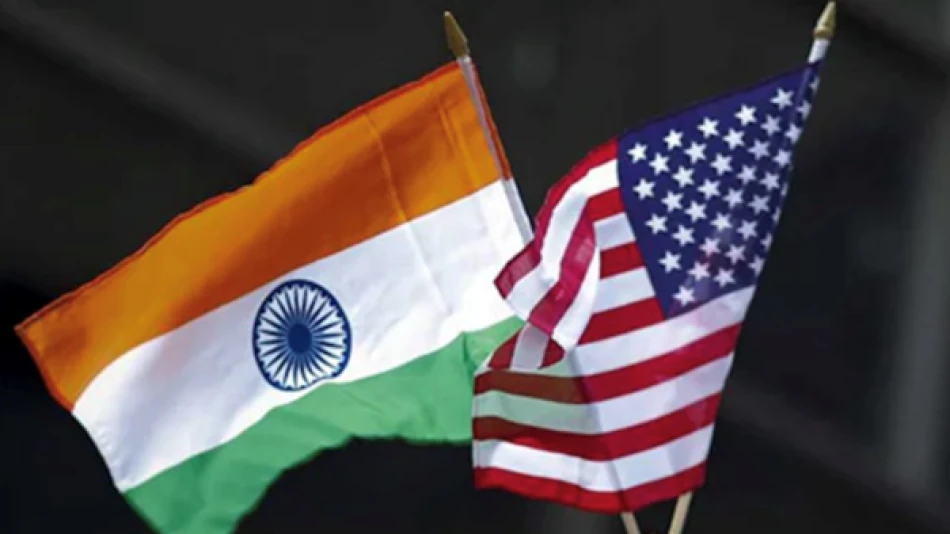
India and US Engage in Constructive Talks on Tariff Dispute
India and US Begin Trade Talks as Trump's 50% Tariff Threat Looms Over World's Largest Democracy
India and the United States have initiated what New Delhi describes as "positive" trade negotiations following President Trump's aggressive tariff escalation to 50% on Indian exports. The talks, held in New Delhi with senior US trade officials, signal both countries' recognition that their economic relationship—worth over $190 billion annually—cannot afford a prolonged trade war, even as exporters warn of massive job losses and order cancellations.
High-Stakes Diplomacy Amid Economic Pressure
The negotiations come just one week after Trump announced the resumption of bilateral trade talks, with US Trade Representative for Central and South Asia Brendan Lynch traveling to New Delhi to lead discussions. India's Ministry of Commerce characterized the meetings as focused on "long-term aspects of trade agreements" and emphasized the "enduring importance of bilateral trade between India and the United States."
Both sides have committed to "intensifying efforts to conclude a mutually beneficial trade agreement as quickly as possible," according to the Indian trade ministry. However, the urgency reflects the immediate economic pressure facing Indian exporters, who are already reporting order cancellations and anticipating significant job losses in key export sectors.
Trump's Tariff Strategy: Familiar Playbook, New Target
Trump's approach mirrors his trade tactics from his first presidency, where he used tariff threats as negotiating leverage against China, Mexico, and European allies. His repeated accusations that India is the "world leader in imposing tariffs" echo similar rhetoric used against other trading partners before reaching renegotiated agreements.
The 50% tariff rate represents one of the highest punitive trade measures imposed by the US in recent decades, comparable only to tariffs on certain Chinese goods during the 2018-2020 trade war. For India, which has been positioning itself as an alternative manufacturing hub to China, the timing is particularly challenging as global companies reassess their supply chain strategies.
Economic Stakes and Market Implications
India's export economy, heavily dependent on textiles, pharmaceuticals, and IT services to the US market, faces immediate disruption. The country's exporters, representing millions of jobs in labor-intensive industries, have already begun sounding alarms about contract cancellations and reduced competitiveness.
For investors, the trade tensions introduce uncertainty into one of the world's fastest-growing major economies. India's stock markets and currency could face volatility if negotiations stall, while US companies with significant Indian operations—including major tech firms with extensive development centers in Bangalore and Hyderabad—may need to reassess their cost structures.
The Path Forward: Complex Negotiations Ahead
Despite both sides' optimistic rhetoric, trade experts anticipate challenging negotiations ahead. India's protective stance on its domestic markets, particularly in agriculture and retail, has historically clashed with US demands for greater market access. Additionally, India's growing digital economy and data localization requirements present new friction points that weren't central to previous trade discussions.
The success of these talks will likely depend on whether both countries can move beyond their traditional positions. For Trump, securing a visible trade victory with India could demonstrate his administration's effectiveness in rebalancing trade relationships. For India, avoiding a damaging trade war while maintaining its economic sovereignty remains the primary objective.
The coming weeks will reveal whether diplomatic engagement can prevent a full-scale trade conflict between the world's largest democracy and its oldest, with significant implications for global supply chains and the broader US-India strategic partnership.
Most Viewed News

 Layla Al Mansoori
Layla Al Mansoori






